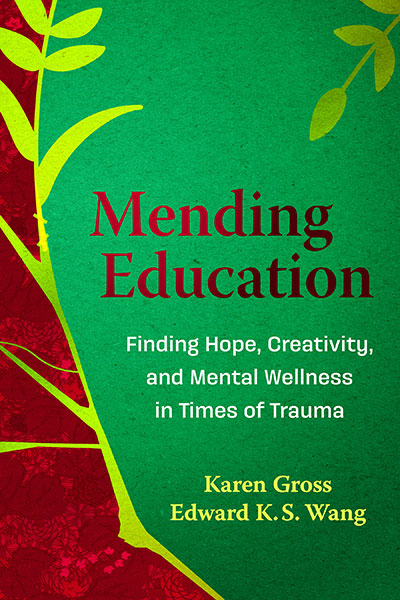Edward K. S. Wang
Edward K. S. Wang loved to listen to stories when he was a child. He is naturally drawn to individual, family, and community narratives professionally to promote growth and healing in tumultuous times. His domestic and international work focuses on improving adolescents' and young adults' social and emotional well-being, strengthening families, and community resiliency.
As the director of policy and planning at the Division of Global Psychiatry at Massachusetts General Hospital and assistant professor of psychology at Harvard Medical School, he coauthored the Project 1 Billion Global Mental Health Survey and the Liberia National Mental Health Policy. He mentors fellows on violence reduction and trauma recovery initiatives.
He was born in Hong Kong and came to the United States alone at age 16. The lived experience of migration and family members who have mental illness pulls him toward an interest in cross-cultural psychology and communication, trauma, and the practice of cultural humility. First he became a practicing clinical psychologist, later becoming a steward of public mental health and developing an integrated policy, program, and practice model toward equitable care for racially and ethnically diverse populations. He shared his approaches with mental health authorities and providers of care with the National Training Institutes of System of Care across the country for decades. Others often use his strategic template in The System of Care Handbook. He retired as the director of the Office of Multicultural Affairs Department of Mental Health, where he built a scaffold of a care system to reduce disparities. Reflecting on his Chinese roots, he shared his experience in the Harvard Kennedy School of Government Asian American Policy Review,” A Journey of Public Stewardship on Asian American and Pacific Islander Mental Health: Massachusetts' Approach to Reduction of Disparities.”
His knowledge and skill-based interactive training (Trauma-Informed Care: Hope, Strengths, Resilience, Growth and Healing and Wellness & Resiliency in Families and Children) integrates the science of toxic stress and trauma with practice-based evidence. Both curricula are customized and used widely for mental health, child welfare, education, and social services domestically and internationally. He cofounded the Virtual Teachers Lounge, an educational and support group for educators.
He is the first Asian American clinical psychologist appointed to the National Advisory Council, Substance Abuse Mental Health Services Administration. He received many state senate and house citations for his performance and community partnership appreciation. He is proud to be honored as a community hero by the Commonwealth of Massachusetts Asian American Commission and served as the board president of the National Asian American Pacific Islander Mental Health Association.
Dr. Wang shares the importance of work-life balance. He is the proud grandfather of two beautiful granddaughters who inspire him to focus work on healthy childhood, family development, and writing children's stories. He enjoys his daily swim and 10,000 steps, gardening, and repurposing items into decorative art.
Contact information: ekwang@mgh.harvard.edu; ed.global.diversity@gmail.com


